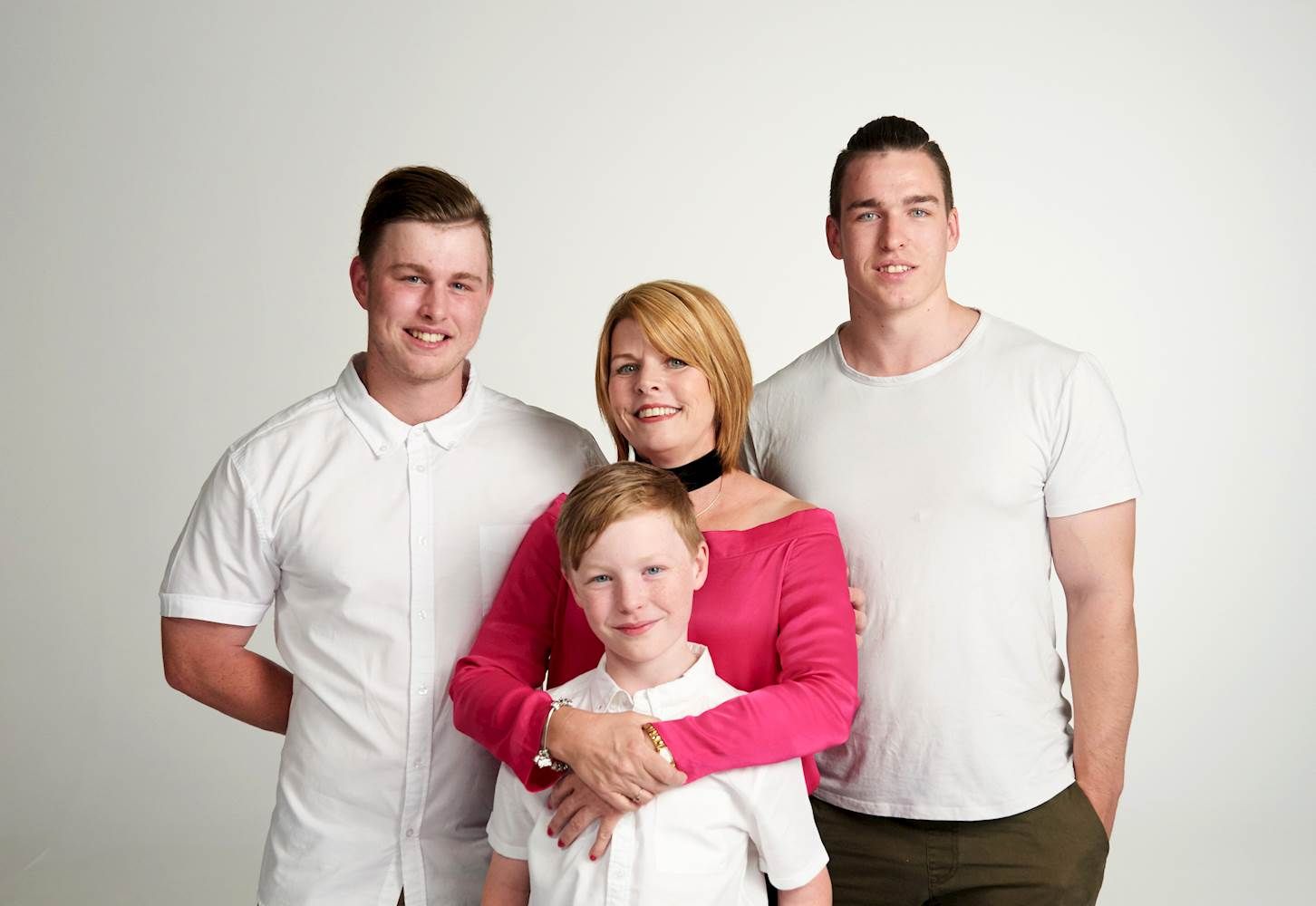I Want to See My Boys Grow Up

She was told at just 44 years old, she had breast cancer
At just 44 years of age, Simone was told the heartbreaking news that she had breast cancer.
Sitting at her dining table, Simone looked into the beautiful faces of her three sons.
Two years earlier she had sat at the same dining table, looked into the same faces and told them that she and their dad were getting divorced. This news was worse.
With a deep breath, she uttered the four words no parent wants to say and no child wants to hear.
“I have breast cancer.”
Simone took the news hard saying “I couldn’t believe it when my GP told me I had breast cancer. I broke down big time, and to this day, I still don’t know how I made it home.”
“I was in complete despair; everyone kept saying it would be early stages, but in my mind, I’d already had cancer for a year,” she said.
“The year before I was diagnosed, I actually had what I now believe were breast cancer symptoms. I had both a mammogram and an ultrasound, but the results suggested it was a cyst. I was given antibiotics and it went away.”
But then she received her cancer diagnosis
Her breast surgeon at Mater confirmed Simone’s fears; she had stage three breast cancer.
“My whole body was shaking and I was hanging on to his hand for dear life and then he said to me, ‘It’s treatable. It’s curable’ and that became my mantra,” Simone said.
“I kept thinking, ‘I want to see my boys grow up’.”
The day Simone started chemotherapy at Mater’s Cancer Care Centre her partner sang ‘Always look on the bright side of life’ as they walked into the hospital.
“From there it was all pretty intense and after being hooked up to the chemo, I felt like ripping everything off me and running away.”
Simone had warned her sons that she could lose her hair as a result of the chemotherapy.
“I remember Blade, my youngest who was only seven at the time, crying that he didn’t want me to lose my hair because I wouldn’t look the same, so I decided we needed to shave it off together,” she said.
“It was about taking control of what we could and I wanted the boys involved because they needed to see that I wasn’t scared of losing my hair or what else would happen.”
Within two weeks, what was left of Simone’s hair began to fall out.
“It would come out in clumps but I still think it was easier to deal with psychologically because it was shorter.”
Her treatment wasn’t easy, but she got through it with the help of her friends and breast cancer nurse
“The whole treatment process was so surreal and I’m glad I distracted myself mentally with my incredible support network and I was also fortunate enough to still be able to go the gym.
“My breast care nurse, Michelle, was very helpful. She phoned several times just to have a chat during my treatment and was a real support for me. I still always stop and see her when I’m at Mater.
During this time Simone was hospitalised once during chemo after she spiked a fever.
“I felt like all of my muscles were on fire, I was in so much pain so they kept me in hospital for a couple of nights.”
But after four long months of chemotherapy, Simone’s tumour had shrunk in size by half, which was a huge relief.
Simone is now in remission and using her experience to help others, by helping Mater Chicks in Pink continue its work in providing tangible support to women with breast cancer when they need it most.
But Simone knows investment in medical research is where the real breakthroughs will happen
“If my cancer reoccurs now, I’m not as scared as I was a year ago because of all the advancements that are being made in the field of breast cancer research,” she said.
And for women like Simone, she’s grateful that right now at Mater Research—our world-class research institute—we have several researchers specialising in breast cancer and there is a growing investment in this space.
Researchers like Professor Greg Monteith who is making leaps and bounds in his research for targeting treatments for women with breast cancer.
Professor Monteith has found that instead of “switching off” the protein to stop breast cancer growing or metastasising, they can activate it further to cause breast cancer cells to be killed off. Essentially, this research has identified potential new drug targets for breast cancer inside cancer cells to stop their growth.
“This work provides a new dimension into how we might be able to treat some types of breast cancers in the future,” Professor Monteith said. “This form of treatment may also complement other treatment options, and could represent a way to make current drugs more effective.”
This form of treatment may also complement other treatment options women like Simone have received and could represent a way to make current treatment options more effective.
While more research and significant funding is still needed to further investigate these options, Professor Monteith’s ground-breaking discovery gives much needed hope to breast cancer patients and their families.
“There’s so much cancer out there and it amazes me how many people I’ve met that have been through, or know someone going through this,” said Simone.
“Being fit and healthy doesn’t guarantee that you won’t get cancer—look at me, so we need to keep raising money to fund more research so we can kill off this disease and save more women’s lives.”
That’s why continued, significant investment in research is needed. Research that will help save more Australians lives.
Purchase tickets in the Mater Prize Home lottery today and help support vital medical research at Mater, improving treatment options and outcomes for patients like Simone.
